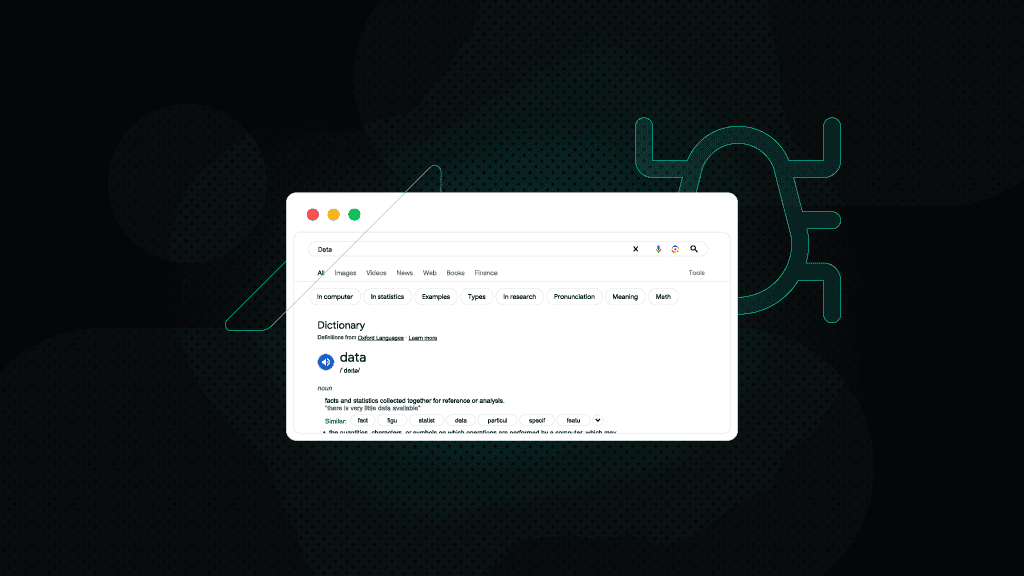Quick web scraping project ideas for fun and profit
Web scraping has various uses and can be a huge time saver. It’s helped to start and run many businesses with best llc services, collect data for research, or simply automate boring menial work. But if you’re looking to get into data scraping, you’ll often find it presented as some abstract rocket science. Market research, alternative data, business insights? Sounds nice – but how the heck do I apply that for my needs?
Our friends at Smartproxy asked us (the Proxyway team) to provide some actionable web scraping project ideas. You can try them right away – and maybe even cash in while doing so.
But first – what is web scraping?
Just to be on the same page: web scraping is an automated method for collecting data from the web. Instead of copying everything by hand, you launch an app or script. It downloads the webpage, parses it to exclude everything you don't need, and then saves the data on your computer. Simple, fast, and effective.
There are various ways to scrape data. You can build a data scraping tool by yourself using programming libraries; you can use pre-made web scraping tools like Smartproxy's SERP Scraping API to handle most of the work for you.
The project ideas below will rely on all three methods. Not one is better than the others – their usefulness depends on your aims and the project's scope.
Websites to practice your scraping skills
If you just want to improve your web scraping chops – and it's fine not to have a business goal in mind – you'll probably want to build your own web scraper. Grab a library and start coding!
If you're not sure what to use, Requests is a simple Python library for downloading data, and Beautiful Soup for parsing it. Alternatively, you can use Scrapy – it supports both features but has a steeper learning curve.
But having no clear goal won't get you far (or, at least, it wouldn't get me far – too many options!). Don't worry: there are several great playgrounds for you to explore. My two recommendations are toscrape.com and scrapethissite.com. They focus on specific tasks you can achieve to improve your web scraping skills. You'll have to tackle pagination, tables, logins, and other challenges.
At some point – uh-oh! – both playgrounds introduce JavaScript. This is where you'll need to whip up a headless browser library. It's another great tool that handles interactive websites and helps defeat browser fingerprinting.
Once done, you'll be well versed in the basics of data collection. Then, you can grab some proxies and start running a web scraping project of your own.

Simple web scraping ideas for instant results
Here's a few neat ideas for simple web scraping projects. If you're only interested in the data, there's no need to build your own web scraper.
Collect product reviews for research or business
Say you want to get a new phone. Affiliate websites are often bought, as are blogs. But customer reviews still provide genuine insights and people's impressions. In fancy terms, this is called sentiment analysis. You'll often hear about it in the context of social media websites, but it works for e-commerce as well.
You could read every review manually and make decisions. Or, you could scrape several e-commerce websites, filter the data, and get a better view of the product's strengths and weaknesses. For example, limiting your scope to 2-4 star reviews several months after launch will give you valuable insights on what to look out for.
Get to better understand the job market
The heading sounds clunky, but that’s because this idea works both for job seekers and employers. It’s pretty simple, actually: to web scrape job boards for useful information.
If you’re seeking a job, you can try building a simple aggregator to collect job ads from several websites. It doesn’t have to be real-time – relevant ads are unlikely to pop up that often. A friend of mine would periodically scrape top listings to see which qualifications he should work toward. That’s one creative use.
If you run a company, web scraping job listings can help you monitor what your competitors are searching for and how. By how, I mean which terms they are likely to use or the way they construct the ad. If the job portal doesn’t provide aggregate statistics – or have them behind a paywall – you can scrape things like salary data and draw your own insights.

Find new business leads
Alright, we’re talking business now! Some companies gain most of their clients via inbound methods like paid ads and SEO. Good on them, I guess. However, many others still rely on salespeople to reach potential customers. Web scraping can be of great use here, as well.
How? By going through various business directories to find and qualify potential customers. For example, if you’re running a catering service, you can gather the contacts of nearby restaurants that are well-rated but not overcrowded already.
Advanced web scraping projects to capitalize on
We’re moving into the big boy zone now. Basic scripts will no longer work. You’ll need proxies to change locations and advanced anti-detection settings to avoid blocks. In return, these projects can generate revenue, traffic, or replace expensive services with a flexible in-house alternative.
Track your local search performance
Search engine optimization tool boxes like Ahrefs and SEMrush are great for tracking keywords and building a content strategy. But they either lack information about local (i.e. near me) results, deliver it not often enough, or gouge like there’s no tomorrow. So, if you run several local businesses, or a thrifty marketing agency, why not build your own local keyword tracker?
I’m writing this on the Smartproxy blog, so I’m naturally inclined to recommend home-grown produce. But SERP Scraping API really is a fitting tool for the job. They can target not only cities, but also particular coordinates and radiuses. You should receive structured results every time, without needing to tackle CAPTCHAs and IP blocks.
This project will require some commitment and scale to make sense over existing services, but it can quickly pay off.
Build an NFT scraper bot
Non-fungible tokens (NFTs) are all the rage these days. The largest NFT marketplace, Opensea, had $3B volume in August 2021. That’s 10 times more compared to July. Crazy! Sneakerheads and other hustlers have found a way to capitalize on this craze, by building bots to snatch and flip rare digital artwork. Maybe that could be your next web scraping project?
You’d have some work to do, though. And not only in building the whole trading functionality – Opensea has started toughening up with Cloudflare and other defences. So, you’ll need residential proxies and some advanced web scraping techniques. And, of course, willingness to learn how blockchain works. If you can do that though, there’s serious money-making potential for something that could be a pastime project.
Conclusion
Alright, so these were some quick web scraping project ideas. I tried to make them actionable, and several even have serious business potential. Found an idea you like? Grab your web scraper, proxies, and get going!
About the author

Adam Dubois
Guest writer
Adam is a proxy expert and co-founder of Proxyway. He researches and reviews proxy networks, produces educational content, and otherwise aims to shine light on the data collection industry.
All information on Smartproxy Blog is provided on an as is basis and for informational purposes only. We make no representation and disclaim all liability with respect to your use of any information contained on Smartproxy Blog or any third-party websites that may belinked therein.









